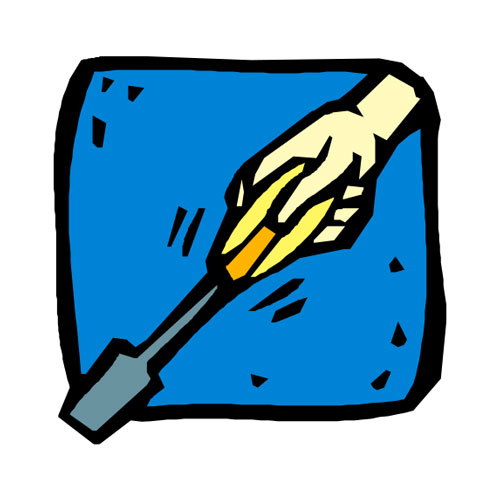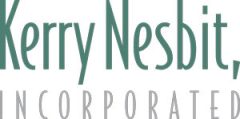
Your Affiliate’s Role—An Overview
As a grassroots organization, NAMI derives its strength and delivers most of its services through local and area affiliates like yours. You and your fellow affiliate members truly are on the front lines in our battle to improve the quality of life for people and families coping with mental illness and to eliminate prejudice and unfair discrimination against them.
Insert Your Affiliate Information Here
Sample Text from NAMI North Carolina:
NAMI North Carolina affiliates range in size from the five-member minimum to groups of more than 100 members. Some affiliate groups are older than NAMI North Carolina itself, while others are just getting started.
As a NAMI North Carolina affiliate, you focus your resources on programs and projects to support one or more of these general affiliate functions—
- Support
- Education
- Advocacy
- Development
- Member Services
- Community Relations
Support, Education & Advocacy
The support you provide callers and newcomers to your support group meetings makes them realize they are not alone and helps them get their problems under better control.
After participating in you state organization’s training programs, established affiliate members teach newer members about the nature and treatment of mental illnesses affecting their families. Your affiliate also identifies and educates individuals and organizations in your community who come in frequent contact with people suffering from mental illnesses, such as mental health care providers, employers, educators and law enforcement officers.
Finally, your affiliate helps teach the general public about severe and persistent brain disorders to help reduce the stigma associated with mental illness and to build understanding and support for key issues.
Ultimately, once they understand the illnesses and have secured the help they need to handle their personal situation, your affiliate’s more seasoned members begin learning about important political and social issues. They then start working to address these issues through advocacy.
As an advocacy organization, NAMI tracks and keeps members informed about important political and social issues affecting people with mental illnesses and their families.
Ideally, affiliates closely coordinate and align their advocacy efforts with those of their state and national organizations. Individual affiliates or members of an affiliate should not begin advocating for a particular cause or position without first coordinating their plans with the state office.
Individual members advocating for their own causes should not mention or imply they represent your affiliate or the state organization.
Memberships & Dues
NAMI encourages all affiliates to offer two levels of membership—
- Standard (or Individual/Family) Memberships for individuals or a family unit and mental health care professionals.
- Open Door Memberships for mental health care consumers and individuals and families with limited incomes.
If you wish, you may create a separate membership category for mental health care professionals and reserve the standard membership for family members and friends of people with mental illness.
Joining NAMI at any level—local, state or national—automatically enrolls the new member in all three levels of the organization.
Donating money to an affiliate or to the state or national organization does not result in membership. If the donor wants to join NAMI at any level, he or she must fill out the membership form and pay dues.
Setting Dues Amounts
In the past, dues amounts varied considerably from affiliate to affiliate. As part of NAMI’s effort to standardize its programs and services nationwide, both the state and the national organizations strongly encourage all affiliates to standardize dues amounts as well.
NAMI strongly recommends setting annual dues for standard and professional memberships at $25, including $13 for the local affiliate, $7 for NAMI and $5 for the state organization. Set your affiliate’s annual Open Door dues at $3, including one dollar each for your affiliate and the state and national organizations.
With a standardized dues structure throughout our organization, we can simplify bookkeeping and minimize confusion for members moving from one part of the state or country to another. If your board feels the benefits of membership are not worth $25 a year, contact the state office for help in improving your affiliate’s programs and services.
Dues Sharing
For every $25 direct membership received at the NAMI national office each quarter, NAMI rebates $18 to the appropriate state organization. The state office then forwards $8 of the rebate to your affiliate for every new member who lives within your affiliate’s service area.
For new members who join NAMI under the $3 Open Door rate, NAMI rebates $2 to the state organization. The state office then sends a rebate to your affiliate for every new Open Door member living in your service area.
After a new member’s initial membership expires, your affiliate is responsible for sending dues notices and collecting renewal dues, just as you do for affiliate members who joined NAMI at the affiliate level.
NAMI Building Blocks
In return for dues sharing, NAMI expects each of its affiliates to meet basic minimum service standards. With the publication of NAMI Building Blocks: Growth and Development of Local Affiliates and State Organizations, NAMI has given us the tools our state organizations and their affiliates need for effective self-evaluation and improvement.
NAMI asks each state organization to distribute questionnaires to each of its affiliates annually. Through the evaluation process, your affiliate can define its strengths and identify opportunities for growth and improvement.
State organizations will use affiliates’ self-evaluations to determine what services are available throughout the state and what types of technical support each affiliate needs to meet quality and service standards.
Your state organization reports the results of the annual Building Block evaluations to NAMI, along with submitting its own self-evaluation form for review by the NAMI staff.
The Building Blocks program presents clear guidelines for expanding and upgrading your affiliate’s service to your community. With the training and program support available through your state organization, your affiliate can access the resources you need to improve the quality and variety of services you offer. Once the Building Blocks program is established, only those affiliates filing annual evaluations with the state office will be eligible to receive dues rebates from NAMI.
Wonder where you stand right now? Use the checklist, based on the evaluation questionnaire, for a preview of your affiliate’s status. Please contact the state office if you have any questions about either the dues sharing process or the NAMI Building Blocks program.
Member Services
People join your affiliate for the services and opportunities you provide—
- One-on-one support from fellow members and/or your local telephone contact
- Family support groups
- Educational programs featuring expert guest speakers
- Local, state and national newsletters providing news and useful information from community, state and national perspectives
- Guidance and support for young families
- Chances for meaningful involvement in programs and projects to reduce the stigma of mental illness and improve services and care
- Access to training by the state office staff for members who want to facilitate a support group, teach a course, advocate more effectively or present educational programs to church and civic groups
Your affiliate also serves members by keeping them informed about affiliate activities, encouraging them to keep their membership current, finding a place to meet, supplying refreshments at meetings and making sure visitors and newcomers feel welcome.
Community Relations
As a community service and advocacy organization, your affiliate must reach out to other organizations and individuals. The community relations function involves developing mutually beneficial relationships with specific groups within the greater community you share.
Some community relations targets might include—
- Prospective members
- A specific cultural, ethnic or socioeconomic group
- The state psychiatric hospital serving your county
- The State Mental Health Agency
- Mental health care providers
- Government officials
- Editors and reporters
- Other local and regional advocacy groups
- Hospitals and primary care physicians
- Churches
- Colleges and universities
- Businesses and civic groups
NAMI encourages affiliates to cultivate meaningful working relationships with a variety of people and groups. Over time, your goal is to create a strong network of contacts who know you, respond to your questions and requests and refer prospective members to you for service.
Funding Your Affiliate
Member dues generate income to cover the basics for your affiliate, such as office supplies, photocopying, post office box rental and postage. Your affiliate will need additional funding for the services you provide.
Many affiliates raise money through special events or by having members sell merchandise. The events may be strictly to raise money, such as a yard sale or bake sale, or they may be designed to meet educational and community relations goals, too.
For example, if you set up an educational display, distribute brochures, sell merchandise and accept donations at a hospital health fair booth, you will simultaneously educate the public, raise your affiliate’s visibility and solidify your relationship with the hospital as well as raise money. The state office staff is happy to support you in planning and staging special events to raise money for your affiliate.
The best way to fund your affiliate programs is through community and foundation grants. NAMI strongly encourages its affiliates to seek donations and grants from businesses, civic groups and community foundations. Some affiliates have applied for and received foundation grants for housing and clubhouses. Others have helped their area programs do so.
Grant-seeking involves—
- Carefully planning programs and projects to be supported
- Finding the right organizations to approach
- Writing grant proposals
- Submitting the proposals to the organizations
Remember, before you launch any fund raising efforts involving community foundations, you must have incorporated your affiliate and applied for official 501 (c) (3) status. Consult with the state office staff for help with identifying appropriate organizations to approach and advice on preparing grant proposals.
Affiliates’ Checklist for Excellence
| Board of directors and some working committees | |
| Articles of incorporation & bylaws | |
| Non-profit 501(c)(3) status | |
| A regular newsletter and/or meeting notices | |
| Monthly educational meetings | |
| Regular monthly or quarterly business meetings | |
| Public presentations | |
| Educational programs and forums | |
| Outreach to diverse groups (consumers, families of children and adolescents, siblings, multicultural groups) | |
| Information and referral services (or connection with a central referral service through the state organization) | |
| An education program for families | |
| Facilitating one or more support groups | |
| Advocacy in the community and state level | |
| Ability to take advantage of technology (e.g., answering machine, fax, e-mail) | |
| Mental Illness Awareness Week activities | |
| Engage in fund raising efforts | |
| Work with the media | |
| Active membership growth | |
| Two-way communication and information sharing with the state organization | |
| A designated representative to the state consumer council who will assist in coordinating consumer affiliate activities and outreach | |
| Provide formal, centralized information and referral services, hot lines, 800 number | |
| Involve other community groups in the NAMI brain disorder (mental illness) agenda | |
| Engage in grassroots advocacy on local, state, and federal issues | |
| Secure local media publicity and community relations | |
| Conduit for information to and from the state organization and NAMI regarding new issues and initiatives |
Continue to the next section
Return to the previous section
Return to the Affiliate Tool Kit Contents page
Let’s Talk About Your Marketing Communications Goals and Challenges!
If you’re looking for help with writing, graphic design and marketing communications and you like the portfolio samples you see here, contact me to schedule a telephone call to explore the possibilities of a collaboration. Of course, there is no cost or obligation for the call.
